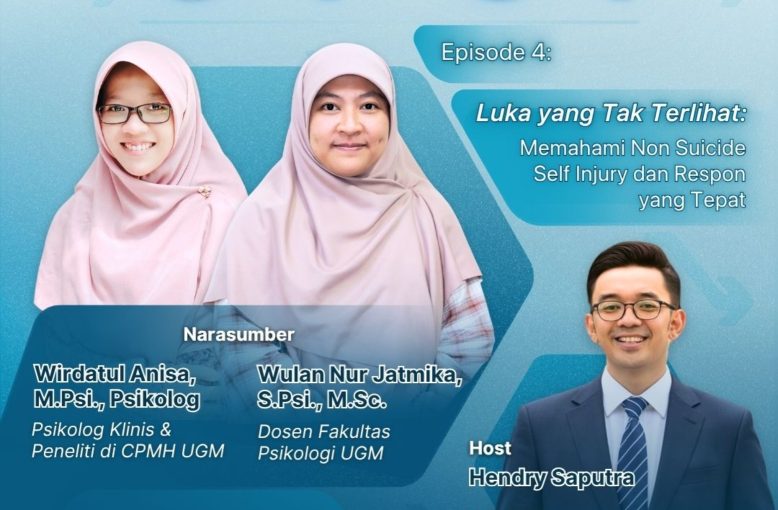
The Faculty of Psychology at Universitas Gadjah Mada (UGM), in collaboration with TVRI Yogyakarta, presents the fourth episode of OPSI: Psychological Talk, which aired on Tuesday, May 20, 2025, from 3:00 to 4:00 PM WIB. This episode addresses an important and sensitive topic titled “The Invisible Wounds: Understanding Non-Suicidal Self-Injury and Appropriate Responses.”
The speakers featured in this episode include Wulan Nur Jatmika, S.Psi., M.Sc., a lecturer with a strong interest in mental health and mental health epidemiology. Mrs. Wulan is actively involved in various research and advocacy efforts, including suicide prevention programs, the Thriving Schools project, and Arts for Mental Health Advocacy. With her academic background and strong commitment to public health issues, she promotes the integration of psychological science and data-driven approaches to improve mental wellbeing.
Also featured is Wirdatul Anisa, M.Psi., Psychologist, who serves as the Coordinator of the Psychoeducation Department at the Center for Public Mental Health (CPMH) UGM and is a clinical psychologist with over six years of experience. Wirda focuses on family resilience, child and youth mental health, parenting, and mental health promotion. She is actively involved in developing various mental health educational pocketbooks and the mental health chatbot “Lintang” at UGM.
In this episode, the speakers discuss the phenomenon of Non-Suicidal Self-Injury (NSSI), which refers to self-harming behaviors without suicidal intent, often misunderstood or overlooked by the general public. Is this behavior the same as suicide? How should one respond appropriately when encountering someone who engages in NSSI? These questions are thoroughly addressed during the 60-minute discussion.
This episode of OPSI invites the public to better understand self-injury behaviors and to provide appropriate, empathetic responses to support those in need.
Don’t miss other exciting episodes of OPSI: Psychological Talk! Watch the replays and continue following engaging discussions about psychology on the Kanal Pengetahuan Psikologi UGM Channel: https://www.youtube.com/@psikologi.ugm1965.
